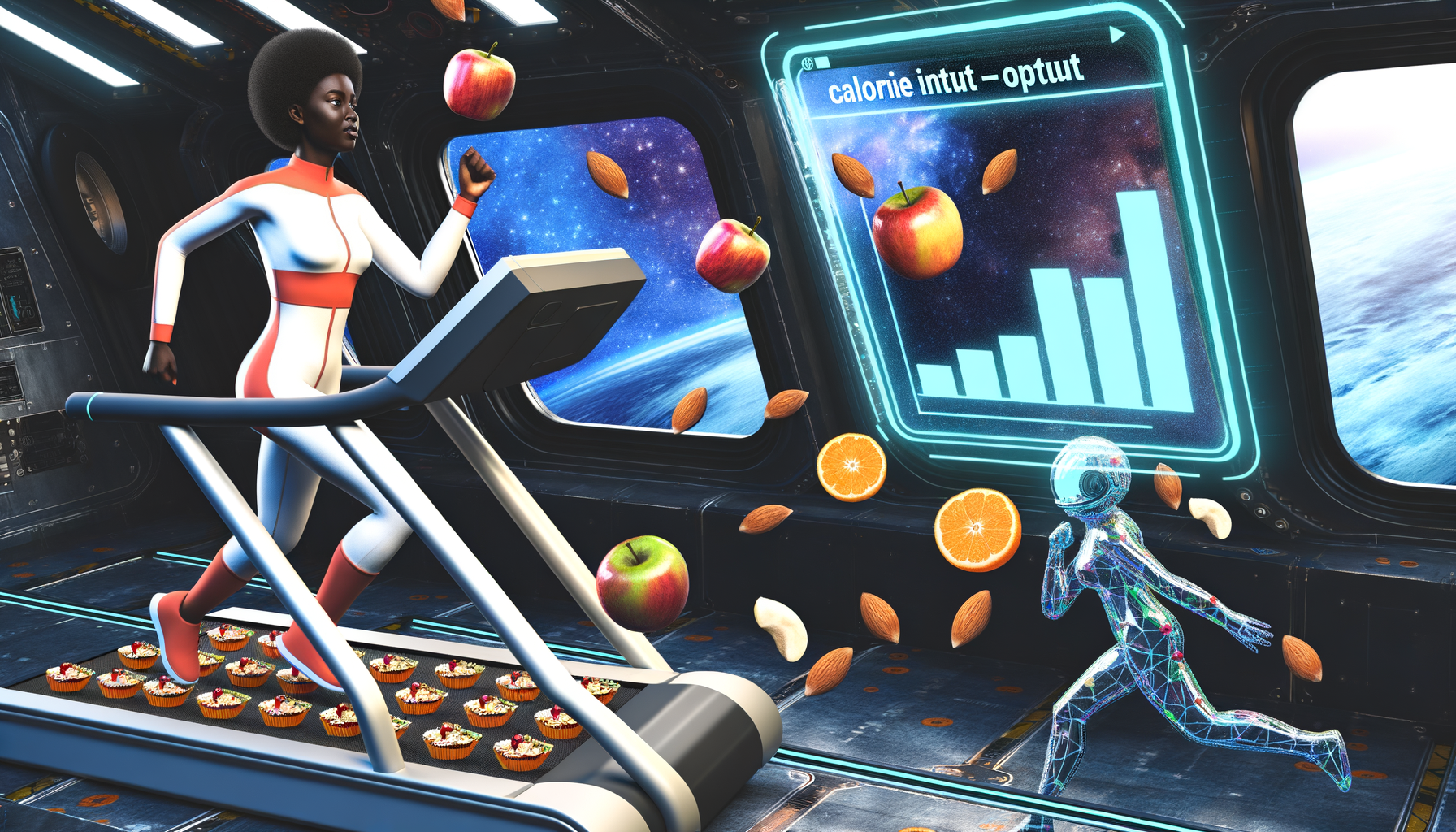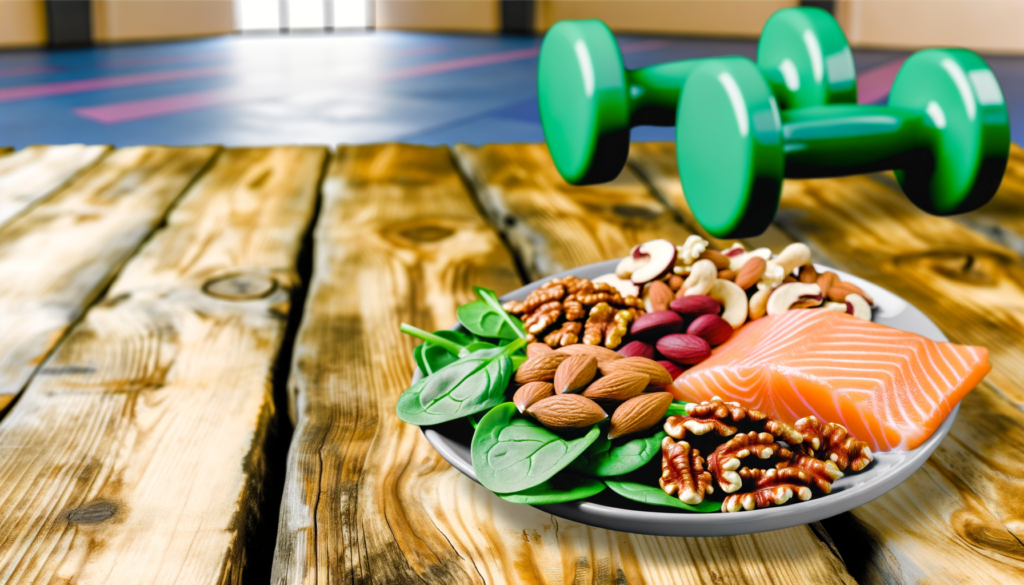The Challenges of Space Nutrition: Calorie Tracking for Astronauts
When it comes to space travel, the nutritional needs of astronauts are vastly different from those on Earth. The unique environment of microgravity presents several challenges that affect how astronauts eat, absorb nutrients, and maintain their health. Here, we delve into the intricacies of space nutrition and the innovative methods used for calorie tracking in space.
Nutritional Needs in Microgravity
Astronauts on the International Space Station (ISS) face a range of nutritional challenges. One of the most critical is the need for a high caloric intake. Due to the rigorous exercise regimen required to prevent bone and muscle loss, astronauts need to consume between 2,500 and 3,500 calories per day[1][4].
In addition to high caloric needs, astronauts have specific dietary requirements. For instance, sodium intake must be reduced because the body sheds less sodium in space. Vitamin D is another crucial nutrient, as astronauts do not receive UVB radiation from sunlight, which is necessary for Vitamin D synthesis on Earth[1].
Food Preparation and Consumption in Space
Food preparation in space is a complex process. Astronauts cannot cook their meals due to the constraints of microgravity and their busy schedules. Most food provided is ready-to-eat, including thermostabilized and irradiated foods, which are similar to canned goods but packaged in flexible pouches to save weight and volume[1].
Astronauts use a food warmer to heat their meals, which can reach temperatures of about 185 Fahrenheit. This method ensures that the food is heated evenly through conduction[1].
The Issue of Weight Loss in Space
Despite the high caloric needs, astronauts often experience weight loss during their time in space. This is partly because they tend to eat fewer calories than recommended, averaging about 20% fewer calories than their daily requirements. This phenomenon, sometimes referred to as “spaceflight anorexia,” can lead to significant weight loss, which is a concern for astronauts with little excess weight to spare[2][3].
To address this issue, flight surgeons closely monitor the astronauts’ food intake and encourage them to consume more high-calorie foods if necessary. Tools like the EveryWear app, developed by the European Space Agency (ESA), help astronauts track their meals and receive nutritional advice from experts on Earth[3].
Advanced Tools for Calorie Tracking
The EveryWear app is a significant advancement in space nutrition. This iPad-based application allows astronauts to log their meals by scanning barcodes or selecting food items from a database. The app also tracks water consumption, exercise, heart rate, and sleep quality through wearable biomedical sensors[3].
This data is crucial for ground teams to provide personalized nutritional advice and ensure that astronauts are meeting their daily energy needs. The app’s accuracy and ease of use have been praised by astronauts like Thomas Pesquet, who found it helpful in maintaining a balanced diet without adding extra time to his busy schedule[3].
Scientific Studies and Data Collection
Researchers are continually studying the effects of space travel on the human body to optimize nutrition for long-duration missions. For example, a study involving ESA astronaut Paolo Nespoli used various measurements, including a breathing mask to track oxygen consumption and carbon dioxide production, and a dose of labelled water to calculate total energy use. This data helps in tailoring meals to the astronauts’ specific energy needs[5].
These studies also shed light on how weightlessness affects metabolism and body weight. By analyzing data collected before, during, and after space missions, scientists can better understand the metabolic changes and develop strategies to mitigate negative effects such as bone loss and muscle atrophy[5].
Implications for Future Missions
Understanding the nutritional needs of astronauts is crucial not only for current ISS missions but also for future deep space missions to the Moon, Mars, and beyond. By accurately counting calories and tracking nutritional intake, researchers can ensure that astronauts receive the necessary nutrients to maintain their health and performance during these long-duration missions.
The data collected from these studies also has implications for Earth-based health care. Understanding energy balance in relation to diet and activity can improve the care of bed-ridden patients and contribute to broader health and nutrition research[5].
Conclusion and Future Directions
Calorie tracking for astronauts is a multifaceted challenge that requires innovative solutions and continuous research. The use of advanced tools like the EveryWear app and detailed scientific studies has significantly improved our understanding of space nutrition.
As space exploration continues to push boundaries, the importance of optimizing nutritional strategies will only grow. By leveraging technology and scientific research, we can ensure that astronauts remain healthy and perform at their best, even in the unique and demanding environment of space.
If you’re interested in learning more about how to track your own calories and maintain a balanced diet, consider using tools like the Calorie Calculator Cloud, which can help you plan your meals and monitor your nutritional intake with ease. For more detailed plans and pricing, check out the Calorie Calculator Plans.
In the pursuit of better health, whether on Earth or in space, accurate calorie tracking and nutritional planning are essential steps towards achieving optimal well-being.








